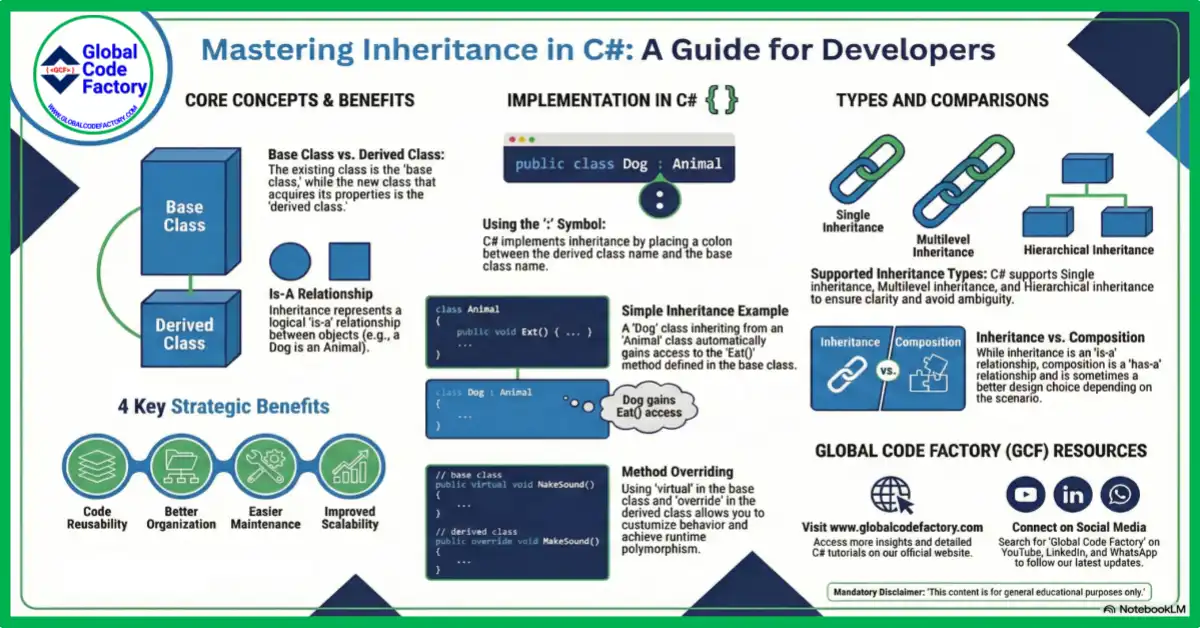SOLID Principles In C#: Mastering Object-Oriented Design in C#
SOLID Principles in C# are foundational for clean and maintainable C# code. Let us first examine the significance of these ideas.
💡 Learn Visually:
The video above explains SOLID Principles using clear, real-world examples to help you understand clean code and object-oriented design concepts easily.
SOLID principles in C# aid programmers in creating adaptable code. Over time, they also facilitate simpler maintenance.
Each premise of SOLID principles in C# will be explained simply below.
1. Single Responsibility Principle (SRP)
- This principle means each class should have only one reason to change.
- It ensures that your class remains attentive.
- SRP additionally reduces bugs.
- This makes it simpler to test and expand your code.
2. Open/Closed Principle (OCP)
- According to OCP, a class ought to be closed for changes but open for modifications.
- In actuality, new behavior is added without modifying the code that already exists.
- Your C# SOLID design becomes more resilient and adaptable as a result.
3. Liskov Substitution Principle (LSP)
- According to LSP, derived classes have to function in lieu of their base classes.
- Your code will continue to be dependable if you adhere to LSP.
- Additionally, tests and refactoring also become safer.
4. Interface Segregation Principle (ISP)
- Small, targeted interfaces are preferred by ISPs over large, complex ones. Clients are therefore solely reliant on methods they truly use.
- This enhances SOLID principles’ modularity and clarity in C#.
5. Dependency Inversion Principle (DIP)
- According to DIP, High-level modules should not rely on low-level modules.
- Rather, both should depend on abstractions.
- Thus, in C# projects, this improves testability and decouples components.
Benefits of Implementing SOLID Principles
- Cleaner and more maintainable code.
- Unit testing made simpler by decoupled design.
- Quicker response to new needs.
- Lower risk of regressions when extending code.
How to Use?
- Construct focused classes from large ones (SRP).
- Make use of abstract classes and interfaces for extension (OCP, DIP).
- Verify the derived class substitution (LSP).
- Establish client-specific, small interfaces (ISP).
- Use interfaces or constructors to inject dependencies (DIP).
Scalable architecture is regularly produced using C# using SOLID principles.
Furthermore, reduced coupling makes automated tests more reliable.
Using SOLID Principles in C# improves the quality of your code.
Better design, simpler maintenance, and reliable extensions are all supported.
As a result, these guidelines should be routinely followed by any serious C# developer.







